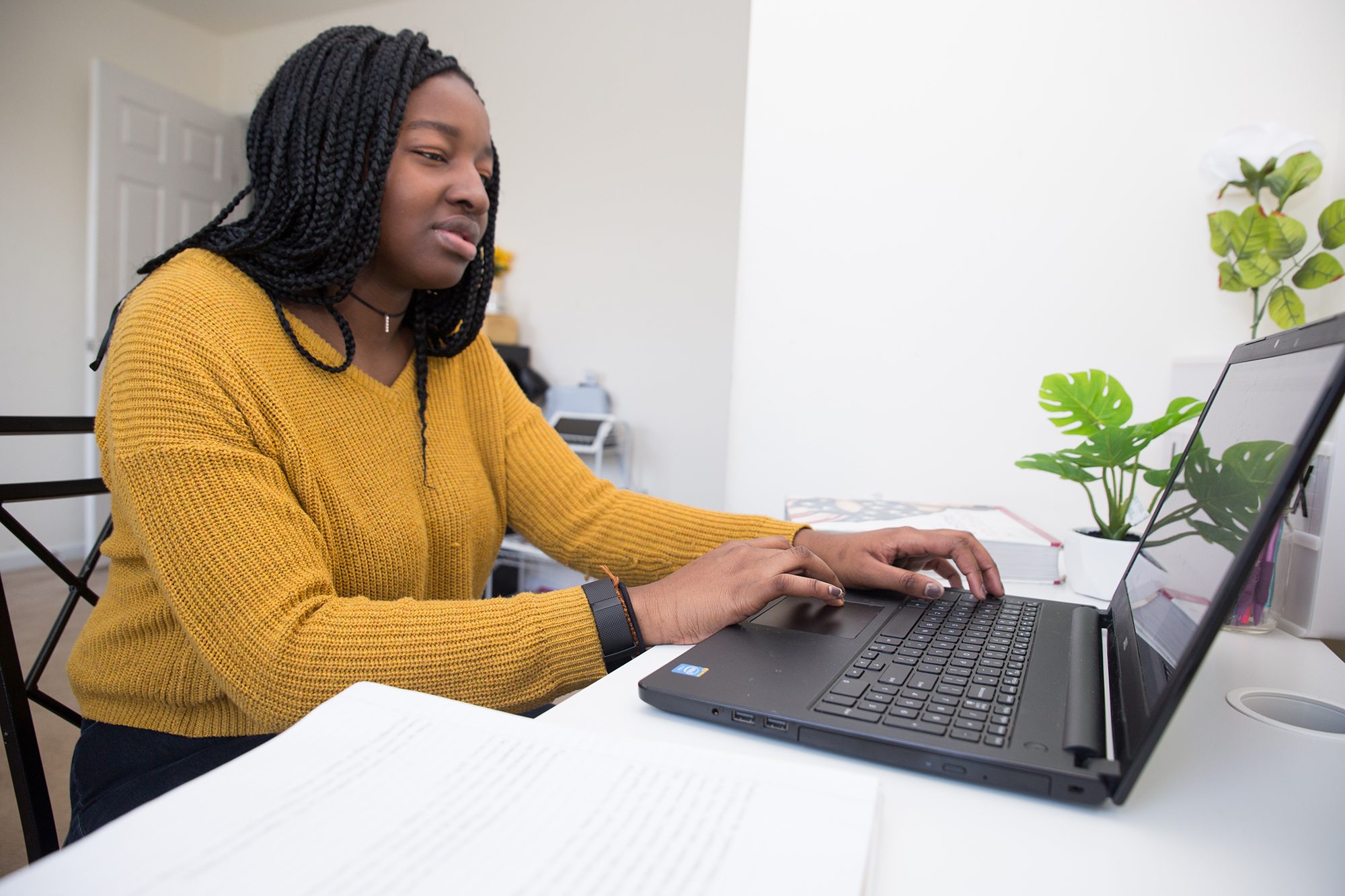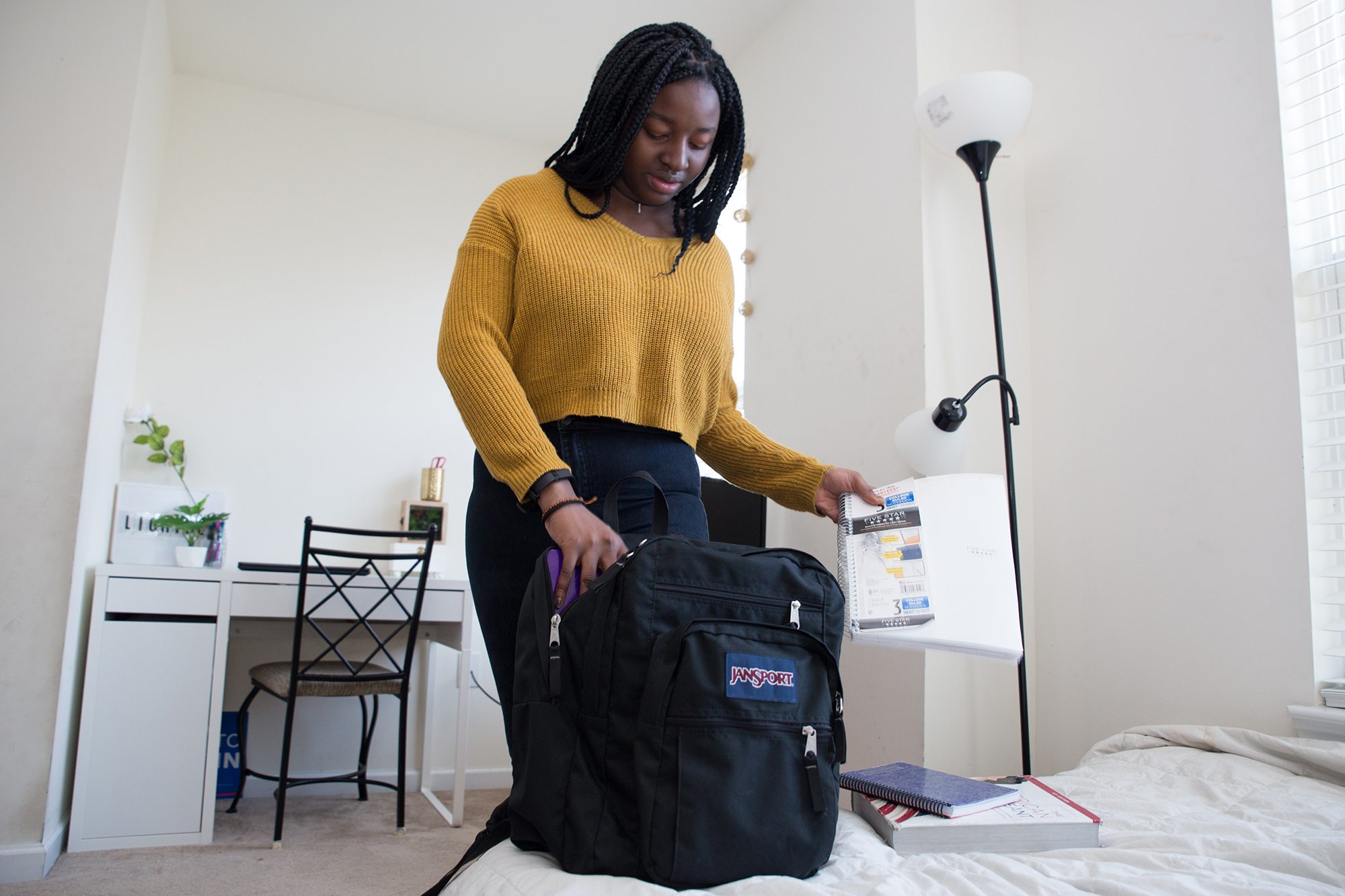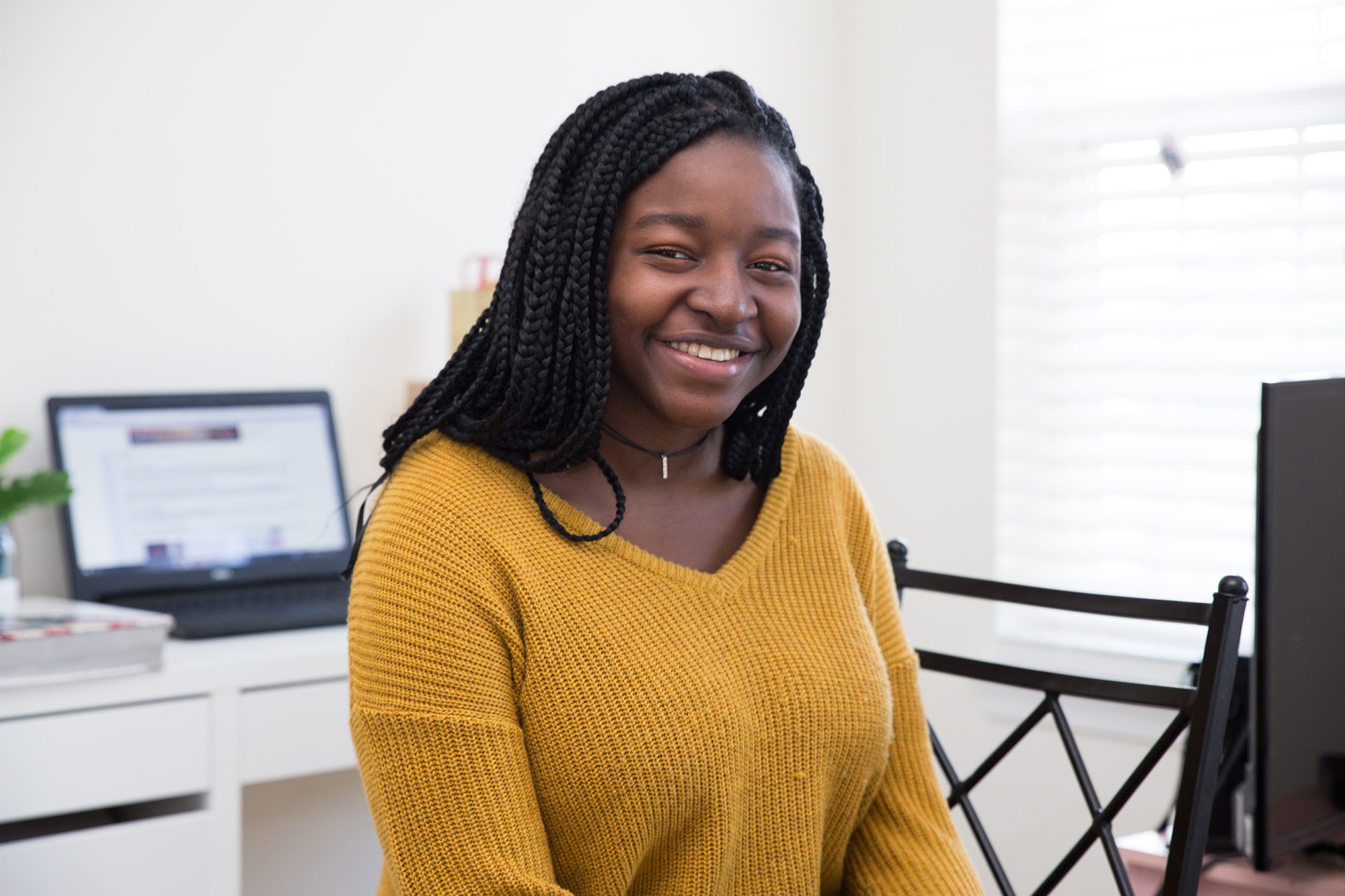Being a minority, the one out of 100, isn’t fun or easy. I don’t feel unique in a positive way. Nor do I feel safe and accepted in many spaces. I’m sharing my story in the hopes that it will help others who feel the same way.
I came to America at the age of 7.
I was born in Abuja, the capital of Nigeria. I had only seen, lived and related with people who looked like me.
My family’s journey to America was not a journey to a completely unfamiliar place. Relatives on my mother’s side spent several years in the United States while my grandfather received his Ph.D. in economics at the University of Minnesota. Throughout my younger years, my mother also traveled back and forth from the States, often bringing back trinkets and toys.
My mother lived in Minnesota for awhile in the 1970s. It was a different time. Her experience there deeply affected the way she thought and processed discrimination. She applied much of what she learned as a young girl in a black Muslim family to consciously prepare me for the situations I would face in the United States.
From physical abuse by older white kids at the park, to chants from African-American kids in school, America could be a cruel place.

Zoe Vongtau attends Baldwin High School with a student body that is 81 percent white. She feels that the school is lacking groups that would provide 'safe spaces' to minority students. (Photo by Njaimeh Njie/PublicSource)
Similarly affected by my grandfather’s experiences of racism as a black man in college, my mother swore not to become militant. Essentially, she always reminded herself not to begin to hate all white people, like her dad did. She inspired me to do the same.
My first year in Maryland set the tone. I learned to hide the accent, hide the culture, block the past.
This system of hiding and blocking would continue into my teenage years, conversations with teachers and relationships with friends.
I was just always the new black girl. I didn’t present myself as a Nigerian girl with the accent or exclamations like ‘kah’ and masculine hisses. If you don’t know what I mean by the latter, I’m not sure exactly how to put it into different terms, other than in Nigeria and some other African cultures, hissing noises are often used to respond to something shocking.
For the majority of my nine years in America, I’ve refrained from talking about myself, my feelings and thoughts.
The question, “So, where are you from?” always tipped me off. I’d stand, mouth open in shock, my brain rushing to find an appropriate answer.
If I say Nigeria, they’ll either shudder and stop talking or ask my how many lions I owned.
If I say Maryland, they’ll smile and tell me the story of yearly family trips to Ocean City.
The second option was just easier. I didn’t know going with that would manifest into the suppression of my voice and thoughts.
Hiding who I am was eased by the fact that I had no one to relate with, no friends from other countries. No classroom had ever made me feel safe, and I was never truly comfortable in any friend group.
The question, 'So, where are you from?' always tipped me off ... If I say Nigeria, they’ll either shudder and stop talking or ask my how many lions I owned.
Growing into a teenager, my cultural repression began to transform into a more personal one.
From going to a public school in Pittsburgh to smaller suburban schools in Baldwin, a borough south of the city, I was still unable to find minority friends. All of them were white.
The fact of the matter is I’m black.
My black feelings can’t be fully grasped by my white friends. My black thoughts will never be fully understood by white teachers. It is one thing to be able to confide and talk to a person, but sometimes connections like race are defining. No matter how delicately I explain the effects of society on my mind and body, only a person experiencing the same things can unconditionally understand. This level of understanding can’t be feigned, and I crave it to feel sane.
Baldwin High School bills itself as a diverse institution, yet it is nearly 81 percent white.
After protests, I’m forced to hold my tongue as my peers there condemn and generalize. After police shootings, I’m unable to fully feel and process. From the summer of 2015 and into 2016, the rise of police shootings and black deaths took a toll on me. I’d watch and idealize protesters, including some friends, who marched the streets in pain and for justice. On the flip side, when I would return to school, I’d listen, sure to keep my mouth shut, to discussions in which my peers would call protesters “violent” and “jobless” — apathetically labeling the groups as unnecessary.
My schools didn’t offer clubs or groups that allowed an opportunity to talk about these problems, so I began to assume they didn’t exist.
I was only exposed to the reality of what these groups were when I visited other schools like Pittsburgh CAPA in Downtown.

"Many schools have affinity groups like black and feminist student unions and gender alliances that provide secure spaces in which people can freely and unmercifully express themselves," Zoe Vongtau said. She hopes to encourage the formation of these groups, or at least similar conversations, among her peers. (Photo by Njaimeh Njie/PublicSource)
Many schools have affinity groups like black and feminist student unions and gender alliances that provide secure spaces in which people can freely and unmercifully express themselves — and be heard. Although far from perfect, these groups were a dream come true.
I’ve only recently discovered that whether it is a conversation or daily event, the existence of a safe space is necessary.
From a four-day trip through GirlGov, I had my first experience of a sanctuary.
We were given rules, laws that demanded respect and civility.
The general feeling of acceptance exposed me to something I’ve been lacking, helping me define my desire for an asylum. In groups, people weren’t afraid to share and were still there to serve as a listening ear.
When the trip ended, I was forced to come back to my reality. The reality of feeling alone and misunderstood. No more open ears, arms and minds.
At home with my mother is a different story. There is acceptance and love and total understanding. At school, I feel isolated.
In the halls and classes, teenagers mock the words “trigger” and “safe spaces.” They are the ones who must have never considered guarding their thoughts and feelings. Almost daily in school, I experience scenarios in which able people, in mind and body, ridicule and normalize real trauma.
My black feelings can’t be fully grasped by my white friends. My black thoughts will never be fully understood by white teachers.
I haven’t met many others with a story like mine. Most of the people I talk to who attend schools with affinity groups are shocked that I don’t have an outlet in my school or community.
It’s become a little easier for me through my participation in GirlGov, a program of the Women and Girls Foundation, and Furthering Student Unity, an anti-racist group.
Through experiences and conversations with others, I’m learning and growing, and participating in conversations I couldn’t fathom having at school. But I want to change that. I hope to bring these conversations into my school. I can do it in history class by discussing the rise of cultural appropriation within minority groups. I can do it outside of the classroom, too, with people my age.
There is an urgency to talk about the reality of being black in today’s society. Most students cultivate prejudices about movements like Black Lives Matter because they are never in spaces to talk with affected minorities, more specifically, black and brown people. I am fully comfortable with being the person people come to for conversations on race relations.
I won’t change my school overnight. The spontaneous development of student unions and affinity groups is unlikely. Despite that, I recognize my privilege to be able seek these spaces elsewhere, so I’ll do my best to help others find those spaces and broaden their perspectives — conversation by conversation.
Zoe Vongtau is a junior at Baldwin High School. She enjoys the art of creating and producing meaningful work exploring race as a young person. Zoe also enjoys writing and reading in all forms, ranging from poetry to journalism. Her interests also include activism and the complexities of acknowledging intersections within her work. If not reading or writing, combining cultures in her cooking takes up her spare time. She can be reached at zoevongtau@gmail.com or Twitter @Zoeerie.
